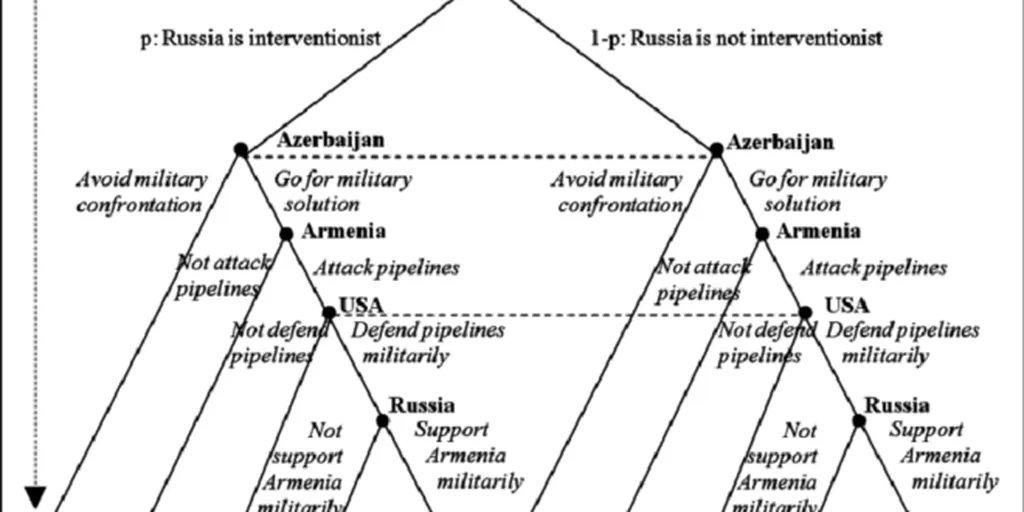Researchers from the National Research Nuclear University MEPhI in Moscow have delved into the complex world of geopolitical interactions, focusing on the production and sale of military equipment. O. A. Malafeyev, N. D. Redinskikh, and V. F. Bogachev have employed game theoretical models to analyze these dynamics, providing insights that could significantly impact strategic decision-making in the defence and security sector.
The researchers first considered the production of military equipment as a two-person zero-sum game, a classic model in game theory where one player’s gain is the other’s loss. In this context, the strategies of the players, or geopolitical actors, are defined by their information state. This means that the decisions made by each actor are influenced by the information they possess about their own capabilities and those of their adversary. By applying this model, the researchers were able to determine the optimal strategy for each actor, providing a valuable tool for predicting and understanding the behaviour of nations or groups involved in the production and sale of military equipment.
Moving beyond production, the researchers also examined the conflict process itself. They applied game theoretical models to this complex scenario, determining the optimal strategy for each geopolitical actor involved. This aspect of the research is particularly significant for the defence and security sector, as it offers a strategic framework for understanding and potentially mitigating conflict. By identifying the optimal strategies for each actor, the models can help predict the likely outcomes of different conflict scenarios, enabling more informed decision-making and strategic planning.
The practical applications of this research are vast. For instance, defence planners could use these models to anticipate the actions of potential adversaries, allowing them to develop more effective counter-strategies. Additionally, the models could be used to analyze the potential impacts of different policy decisions, helping to inform the development of strategies that minimize conflict and maximize stability. Furthermore, the insights gained from these models could be valuable in diplomatic negotiations, providing a deeper understanding of the motivations and likely actions of other geopolitical actors.
In conclusion, the work of Malafeyev, Redinskikh, and Bogachev represents a significant advancement in the application of game theoretical models to geopolitical processes. Their research offers valuable insights into the production and sale of military equipment, as well as the conflict process itself. These insights have clear and significant implications for the defence and security sector, providing tools and strategies that can enhance strategic decision-making and contribute to global stability.Read more at arXiv.

